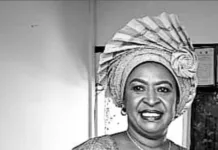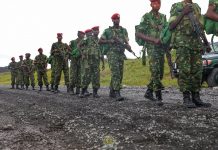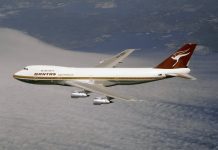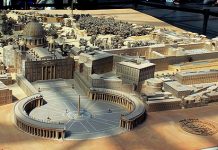List of Top Pan-African Leaders And Their Contributions
As the 21st century rumbles on, blacks are still embroiled in a fierce fight against racism and indignation.
Fresh in our minds is the brutal police murder of George Floyd, an African-American in Minneapolis (USA) in May 2020.
A massive Black Lives Matter (BLM) movement was coined in the aftermath of George Floyd’s murder which involved highly charged riots.
BLM and the Civil Rights Movement in the United States are similar campaigns that were preceded by the Pan-Africanist Movement.
Pan-Africanism is an ideology that stressed the common interests of all people of African descent and the need for them to work together.
Pan-Africanism was advanced by a group of highly influential people who were christened as Pan-Africanists. Some of the great Pan-Africanists were as follows;
1. Marcus Mosiah Garvey Sr.
-
- Marcus Garvey was a Jamaican Pan-Africanist and Black Nationalist.
- In his capacity as a journalist, he was known for his front-page editorials on the Negro World.
- In his columns and writings, he continuously called for the unity of blacks.
- He rallied Africans in the diaspora to go back to Africa and build a big black nation.
- Through his Universal Negro Improvement Association, Marcus Garvey started the Black Staline Shipping Company in 1919.
- The company which was part of the larger Back to Africa agenda facilitated black commerce from Africa to overseas markets.
- Marcus Garvey, however, attracted reprimand and opposition when he called for black racial purity.
- His goal was to create a separate society and economy run exclusively by blacks, for the benefit of blacks.
- After his death due to illness in 1940, Marcus Garvey continues to be venerated by black generations for his immense contributions to black welfare.

2. Alexander Crummell
-
- Alexander Crummell was a prominent figure from the pedigree of fiery African-American preachers who dedicated their lives to the black people course.
- Similar to the later exploits of Martin Luther King, Crummell advocated for both the cultural and economic independence of blacks.
- Born of a slave family (his grandparents) Alexander Crummell aligned himself with abolitionists.
- The Abolitionist movement was calling for the eradication of black slavery in the United States of America.
- His most notable contribution was the establishment of the American Negro Academy, which produced a prestigious class of learned African-American intellectuals.
- His exploits while in Liberia added to his efforts to civilize Africa under the leadership of educated, skilled, and intellectual blacks.
3. Martin Robison Delany
-
- Martin Delany was an African-American who supported the Abolitionist course of eradicating slavery in the US.
- His ideas were similar to those of prominent Pan-Africanists like Marcus Garvey.
- Martin Delany called upon blacks to exercise racial pride and be proud of their skin color.
- Delany argued that African-American prosperity was not achievable living alongside white people.
- He called for the formation of an independent territory occupied only by blacks.
- Delany alongside his colleagues in the struggle such as Alexander Crummell believed that Africa was the best place to do it.

4. W. E. B. Du Bois
-
- W. E. B. full name William Edward Burghardt Du Bois is one of the most respected Pan-Africanist leaders.
- Du Bois was highly concerned about the experiences of blacks in an America where slavery was rampant.
- One of his important accomplishments was the convening of the first formal Pan-African Congress in Paris (1919)
- The first congress was followed by the second and third in quick succession.
- These congregations were meant to discuss the plight and challenges facing Black people in the world.
- The important resolution of these sessions was the condemnation of colonial rule in the African continent.
- Du Bois and other Pan-Africanists put the racist world order on notice calling for equality for black people.
- Alongside other leaders, Du Bois warned that failure to treat blacks equally would inevitably lead to the rise of a great African state.

5. Kwame Nkrumah
-
- As the Fifth Pan-African Congress was underway at Machester in 1945, the struggle for independence in Africa was entering the home stretch.
- The composition of the fifth edition had also greatly with many African blacks participating.
- The only African-American present was Du Bois.
- One of the organizers was Kwame Nkrumah, the future president of Ghana.
- Kwame Nkrumah belonged to an emerging clique of highly educated African activists involved in the struggle against African colonialism.
- As the Vice-Chair of the West African Students Union, Kwame Nkrumah championed the decolonization of Africa.
- After securing the nation’s independence, Nkrumah set off on a mission to liberate other blacks from white rule.
- He supported other African nationalists in their respective countries.
- Nkrumah further helped set up the Organization of African Union to facilitate Africans in pursuit of a common agenda.

6. Jomo Kenyatta
-
- Until his death in August 1978, Jomo Kenyatta was the president and founding father of the Republic of Kenya.
- He had been Prime Minister before when Kenya gained self-internal rule.
- Before and after Kenya became an independent nation, Jomo Kenyatta was a firm proponent of the unity of Africa.
- He had earlier joined hands with the likes of Kwame Nkrumah of Ghana in organizing the fifth Pan-African Congress in Manchester (1945).
- He believed in and took pride in indigenous African culture and forged political unity and independence of the African continent.
- Jomo Kenyatta used African culture to rally Kenyans towards self-determination and self-reliance.
- His popular rallying call “Harambee” is celebrated as a reincarnation of the African identity of working communally.

7. Julius Nyerere
-
- Julius Kambarage Nyerere was the founding father of the Republic of Tanzania.
- President Nyerere’s commitment to the unity of Africans can not be understated.
- Julius Nyerere achieved the same feat as Du Bois when he sponsored and convened the Sixth Pan-African Congress in Dar es Salaam Tanzania.
- Present in the meeting was Mrs. Amy Jacques Garvey and Mrs. Shirley G. Du Bois among other top figures in Black activism.
- The Sixth Congress reviewed the tremendous progress made towards the decolonization of Africa.
- Nyerere and his co-conveners called for the total liberation of Africa from white rule.
- Further entrenching his passion for African unity, Nyerere vouched for the formation of an East African Federation.
- According to Nyerere, the federation would not only form a big common market and pull resources together, but also kill the negative ethnicity vice in East Africa.
- Nyerere was also a known supporter of Independence struggles elsewhere in Africa.
- He notably facilitated the training and staging of the uMkhonto we Sizwe liberation movement against apartheid in South Africa.

8. Henry Sylvester Williams
-
- Henry Sylvester Williams from Trinidad contributed a great deal in uniting other leaders to advance the course of black freedom.
- As Pan-African ideals took shape it became apparent that Pan-Africanism should be institutionalized.
- This meant that the Pan-Africanism Ideology would be explored and canvassed in formal settings.
- In that realization, Henry Sylvester Williams convened the first-ever Pan-African Congress to formally discuss the affairs of Africans.
- Du Bois was at the time a member of the U.S delegation, took up the tradition from Williams, and later convened successive congresses.
9. Thomas Isidore Noel Sankara
-
- Captain Thomas Sankara was the first president of Burkina Faso.
- Sankara is celebrated for his sound policies that revolutionized the West African Nation.
- Sankara was a firm believer in African self-reliance by rallying people toward solving their own problems.
- The former president proceeded to craft tailored solutions, especially in Agriculture which put his nation on the path toward prosperity.
- To protect Burkina Faso from neo-colonialism and western patronage, Sankara rejected financial aid from institutions like the International Monetary Fund.
- Denoting his desire for the decolonization of Africans, he renamed the Republic of Upper Volta Burkina Faso.
10. Robert Gabriel Mugabe
-
- Robert Mugabe was the president of Zimbabwe from 1980 to 2017 following a coup staged by the country’s military.
- Mugabe was a known hardline Pan-Africanist in deed and rhetoric.
- His reign in Zimbabwe was largely defiant to the colonial powers.
- Robert Mugabe’s signature Pan-Africanist maneuver was the 2000 land reforms that saw thousands of white farmers lose land.
- President Mugabe was adamant that land in Zimbabwe belonged to the native black Zimbabweans and should be returned to them.
- He strongly articulated Africa’s sovereignty on the world stage through his fiery speeches at the United Nations.
- He strongly faulted the exclusion of Africa at the UN Security Council, calling for African participation at the major decision-making table.

11. George Padmore
-
- George Padmore was a journalist who is widely remembered for socialist views.
- Padmore is credited to have mentored both Mzee Jomo Kenyatta and Kwame Nkrumah who were his ardent students.
- Organizing the fifth Pan-African Congress in Manchester in 1945, George Padmore interacted with both Nkrumah and Kenyatta.
- He later worked with Kwame Nkrumah in Ghana where he advised him on Pan-African affairs.
- Padmore’s greatest input was through his writings and publications in which he counseled Africa in the course of realizing its unity.

12. Richard Wright
-
- Richard Wright was an African-American poet and author.
- He used his writings to denounce and bring out the experiences of blacks in a racist and slavery-ridden America.
- Wright is widely recognized for his collaboration with the then journalist George Padmore to advance Pan-Africanism.
- Richard Wright further worked with other authors such as Léopold Sédar Senghor and Alioune Diop, who were at the time involved in anti-colonial struggles in Africa.
- The three intellectuals converged at the 1956 Congress of Black Writers in Paris.
- Wright then assisted in coming up with major publications in the Présence Africaine.
- The Présence Africaine was a pan-Africanist edition that celebrated the cultural values and political ideals of black people.

13. Alioune Diop
-
- Alioune Diop was a Senegalese writer and editor who was involved in the Senegalese anti-colonial struggle.
- He worked alongside other intellectuals such as Léopold Sédar Senghor to remove French rule from Senegal.
- Alioune Diop is particularly credited for founding the Présence Africaine which debuted in 1947.
- The quarterly Pan-African cultural and political magazine would later expand into a full publishing house.
- The Présence Africaine injected much-needed intellect, rallying, and awareness on Pan-Africanism and the bigger goal of emancipating Africans from colonialism.
- The paper attracted contributions from major leaders and Pan-African intellectuals such as;
-
- Richard Wright
- Aimé Césaire
- Léopold Sédar Senghor
- Alioune Sarr
- Richard Wright and many others
-
- Diop then used the Présence Africaine platform to gather other intellectuals at the 1956 Congress of Black Writers in Paris.
- The anti-colonial agenda took center stage at the congress which was an important stepping stone to Senegal’s independence.
14. Léopold Sédar Senghor
-
- Léopold Sédar Senghor was the first president of Senegal following the country’s independence in 1958.
- Senghor, a poet, and cultural theorist immensely contributed to Pan-Africanism and the decolonization of Africa.
- Senghor is, for instance, one of the founders and proponents of Negritude.
- In his poems, Senghor described Negritude as the cumulative influence of African values as seen in African institutions, life, and works of black people.
- Through his ideas, Senghor presented a case for the recognition of black culture worldwide.
- President Senghor further posed that the recognition of African values could also re-engineer western-world to better appreciate the contemporary world.
- His ideas were supported by other Pan-Africanists such as Alioune Diop.

15. Edward Blyden
-
- Edward Blyden was a Liberian Pan-Africanist, educationist, and writer.
- Blyden was born in the present-day US Virgin Islands.
- He was an influential Pan-Africanist during his stint as an educationist in Liberia.
- Blyden fought fiercely against the black inferiority complex in his writings.
- After raising to the positions of Liberia Secretary of State and Classics Professor at Liberia College, Blyden escalated his Pan-Africanist stance.
- In those positions, he invited educated and intellectual Black West Indians and African Americans to Liberia.
- His arguments influenced people like Marcus Garvey who started rallying blacks in the diaspora to go back to Africa.
- Blyden further recommended Islam as a more unifying religion for Africans, as it spread from North Africa.
16. Kwame Ture (Stokely Carmichael)
-
- Kwame Ture was a black nationalist best remembered for his contribution in the US Civil Rights Movement and Pan-Africanism.
- After moving to the US from his native Trinidad, Ture helped shape the course of blacks in America and the world over.
- In the US he was involved with the Student Non-Violent Coordinating Committee at Howard University.
- He fought for black equality alongside Martin Luther King Jr. where he coined the phrase “Black Power.”
- Black Power was a slogan that rallied African-Americans towards;
-
- Political and economic power
- Self-reliance and determination
- Racial pride for blacks
- Self-defense
-
- He then moved to Guinea in West Africa in 1969, where he adopted the name Kwame Ture.
- This was to pay homage to 2 Pan-African heroes; Kwame Nkrumah of Ghana and Ahmed Sékou Touré of Guinea.
- Ture was also married to African singer and activist Miriam Makeba, who on her own merits is regarded as an anti-apartheid and de-colonization crusader.
- Ture was involved in the All-African People’s Revolutionary Party, which was an international movement dedicated to highlighting the challenges of blacks worldwide.
- The party was a powerful Pan-Africanist crusader as it rallied black people out of oppression.

17. Ahmed Sekou Toure
-
- Ahmed Sekou Toure was a prominent Pan-Africanist and the first president of Guinea.
- His contributions to the freedom of Africans saw him lead Guinea to be the first French-speaking country in Africa to be independent.
- He later joined hands with Ghana’s president Kwame Nkrumah in forging the Unity of Africa.
- Their efforts culminated in the formation of the Organization of African Unity in 1963 in Addis Ababa Ethiopia.
18. Tom Mboya
-
- Thomas Joseph Odhiambo Mboya is a Kenyan statesman, former trade unionist, and Pan-African Leader.
- Tom Mboya alongside other Kenya’s founding fathers is credited for setting the early structures for a newly independent Kenya and Africa as a whole.
- Tom Mboya advocated for the fusion of African Socialism in the economy of Kenya.
- Detailed in the Sessional Paper No.10 of 1965, Mboya argued that for any institution to make sense, it must conform to the African traditional values and principles.
- Tom Mboya urged the privatization of indigenous culture and ideas as opposed to western values in Africa.
- In his quest for African Unity, Mboya was named the chairman of the All-African People’s Confrence (1958) in Accra Ghana.
- President Nkrumah named Mboya as chairman in honor of the Mau Mau struggle in Kenya.
- Until his assassination in July 1969 along Nairobi’s Moi Avenue, Mboya was among Africa’s finest visionary leaders.

The list is subject to updates. More to follow.

























